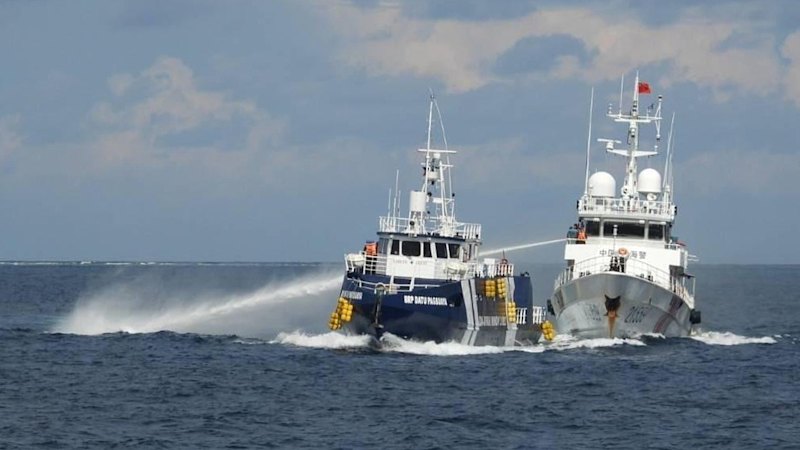
Tensions escalated in the South China Sea on March 10, 2024, as the Philippines and China exchanged accusations following a maritime confrontation near contested islands. The Philippine coast guard claimed that Chinese maritime forces used water cannons and rammed a Filipino vessel near Thitu Island, known locally as Pag-asa Island. This incident has heightened concerns over safety and sovereignty in a region rich in resources.
According to the Philippine coast guard, three boats were anchored near Thitu Island early on Sunday as part of a government initiative to protect local fishermen. Reports indicate that Chinese ships approached and used water cannons to intimidate these vessels. Approximately one hour later, a Chinese coast guard ship allegedly fired its water cannon directly at a Philippine boat, subsequently colliding with its stern. Although the incident resulted in minor damage, there were no reported injuries.
In response, China’s coast guard contended that two Philippine government vessels had “illegally entered” waters near Sandy Cay, a coral reef in the northern Thitu Reefs within the Spratly Islands. Beijing asserted that a Philippine boat “dangerously approached” a Chinese coast guard ship, claiming that Manila is responsible for the confrontation.
The Philippine authorities reaffirmed their commitment to operations in the area, emphasizing the necessity of safeguarding the livelihoods of Filipino fishermen. The South China Sea has long been a flashpoint for tensions between the two nations, particularly over territorial claims.
The region is not only strategically significant but also a vital trade route, facilitating over $3 trillion in annual maritime commerce. Other countries, including Brunei, Indonesia, Malaysia, and Vietnam, also assert claims over parts of the South China Sea, complicating the already tense situation.
As both nations continue to navigate their claims and interests in the area, the potential for further confrontations remains high. The international community watches closely, recognizing the implications of these disputes on regional stability and trade.







